Nazi commando unit Brandenburg-800
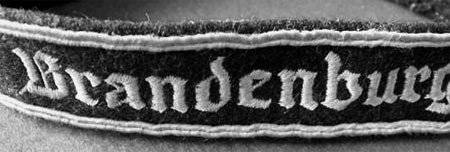
During World War I, Germany led military operations on the African continent under the command of General Lettov-Forbek. One of the officers of the German corps, Captain Theodore von Hippel, drew attention to the fact that in the case when the scouts penetrated into the rear of the enemy under the guise of local residents or in the form of enemy troops, offensive operations were carried out more successfully and with minimal losses. Von Hippel was able to analyze and formulate the unique experience of such reconnaissance and sabotage operations in a special report addressed to the command.
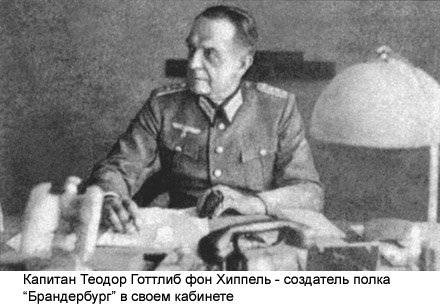
In 30, Admiral Wilhelm Canaris, the chief of military intelligence and counterintelligence of the German army (Abwehr), familiarized himself with these materials. On his orders, von Hippel was again drafted into the army and began to form a detachment of professional intelligence saboteurs. The first such unit was the Ebbinghouse battalion. It consisted of only ethnic Germans who had previously lived in Poland, who knew Polish and were familiar with the life and traditions of this country. The Ebbinghaus fighters helped the German forces advance through Poland, sowing panic and confusion in the rear, seizing or destroying important communications - railway stations, bridges, etc.
Although Ebbinghaus’s actions were successful and effective, the unit was disbanded after the occupation of Poland. But already in September, 1939, von Hippel reported to Canaris on the creation of a special forces unit, which included professional German commandos - an 3 officer and an 67 soldier. In an order issued in October of the same year, it was said about the creation of a "construction training company for special applications-800" and the location of the city of Brandenburg. The company was directly subordinate to the Abwehr sabotage division. The order established that the formation of personnel should be carried out only on a voluntary basis from among the experienced operators, paratroopers, scouts, sappers and divers. It is believed that this reconnaissance and sabotage group was the first special forces unit in Germany.
Gradually, the company has already become a battalion "Brandenburg-800". And the recruitment into it was not quite the usual way - the requirements for recruits did not rely on any regulatory documents, and the requirements for recruits were unusual: applicants should have the ability to adapt to different life situations, be resourceful and dodgy, know the language of the alleged enemy, as well as customs, features and orders of the enemy countries. The Germans tried to express the essence of the division in its motto: “For“ Brandenburg ”all roads are good!”
The newly created battalion consisted of a motorcycle and parachute platoons, as well as four companies: the first included Russian, Finnish and Baltic Germans, the second - French, Portuguese, African and British Germans, the third - the Yugoslav and Sudeten Germans, the fourth - Polish Germans.
The size of the battalion was constantly growing, and it included not only Germans, but also representatives of other nationalities - Ukrainians, Arabs, Indians, etc. The German military registration departments, who had information about all Germans who returned to Abwehr, helped Abwehr find the right specialists. historical homeland, who served in the army and want to work for Abwehr. When interviewing candidates, the battalion command especially drew attention to the level of adventurism and risk appetite, as well as to the inconspicuous appearance of each applicant. In the case of a successful interview, the recruit was subjected to more serious tests: checking the level of intelligence, the ability to instantly orientate in a difficult environment, psychological stability, the ability to improvise, self-control, self-discipline and good physical shape.
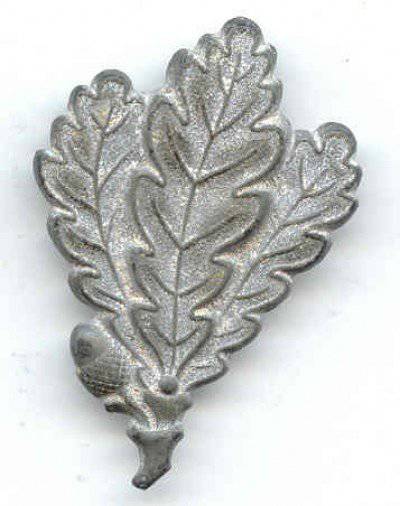
The process of creating a professional "partisan" special forces took several years. The bureaucrats and comrades-in-arms of Canaris, who believed that the admiral was creating his "pocket army" and saw this as a threat to himself, served as a hindrance. But, despite such assumptions, it turned out that for all the years of the unit’s existence in this part there has not been a single case of treachery, it has been served by true supporters of Hitler’s policies. The customs formed in the battalion: the relationship between the servicemen was friendly, the military greetings were replaced with the usual handshake, they were engaged in drill training only when the unit was visited by their superiors. And it was not an indulgence in the service, but a necessity, since “driving” into the mind of a saboteur military regulations could reveal it in a military operation - after all, most often they were carried out in civilian clothes and on enemy territory, and the saboteur needed to merge with the crowd, become “ invisible "and not trump a military bearing and military lexicon. The uniform of the battalion personnel was usual for the German army units - the saboteurs wore the uniform of rangers, and the difference was the chevron on the right sleeve in the form of three green oak leaves and an acorn on the brown branch (the same metal composition adorned the left side of the headdress).
The acquisition of professional skills saboteurs battalion "Brandenburg-800" was given great attention. The training ground was located in the town of Quenzgut on Quenzsee. There were barracks, shooting ranges, educational buildings and a sapper-technical training ground on which models of real objects were installed: bridges, sections of roads, crossings, etc. The saboteurs were trained in engineering-subversive business and tactics of individual actions, including the ability to conceal the object, silently remove posts, and mine. The fighters of "Brandenburg" mastered foreign languages, learned the technique of working with a parachute, landing on the coast, movement on rough terrain in all weather conditions at any time of the day, possession of all kinds weapons and technology. Scout saboteurs were trained in shooting, martial arts, driving all types of vehicles and military equipment, piloting basics, locomotive control, photography, camouflaging, terrain orientation, legislation and customs of the enemy countries, fortification basics, handling explosives, providing medical assistance and much more. At the Abwehr Technical School, the saboteurs of the battalion were taught how to falsify documents, make stamps and distribute fake banknotes.
The main task of the saboteurs "Brandenburg" was using disguise to infiltrate the enemy’s territory and, using the fact of surprise, to help the main forces of the German army following them. The methods used by the fighters of this unit were very diverse. At the same time, both partial camouflage was used (the use of clothes and weapons of the enemy), and complete - this is the organization of the shooting of "his troops" and due to the panic of quickly accomplishing the task. Groups of saboteurs were formed depending on the nature of the planned operation and consisted of either a 5 — 12 man or a whole company.
Western campaign
In the spring of 1940, the nazis planned to occupy Belgium, Holland and Luxembourg. The Abwehr was tasked to assist in the seizure of bridges across the Meuse River near Maastricht and Gennep. Only after the seizure of these strategically important objects could the Germans pass to the fortified line of Peel in Holland and unlock the German paratroopers dropped earlier from Rotterdam.
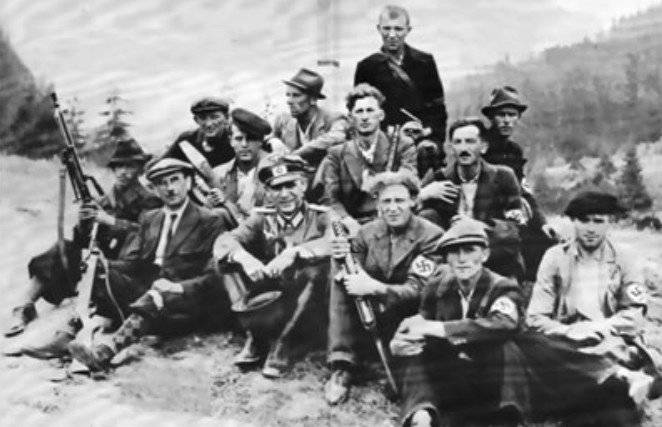
On an early April morning, the Brandenburg group, disguised as the Dutch uniform, went on a mission. Despite the camouflage measures taken, the German combat group had to clash with the Dutch border guards, in which part of the Brandenburg group died. They also failed to clear the bridges over the Meuse, and they were blown up. However, one of the Brandenburg companies still managed to capture the bridge near Gennep. For this operation, part of the saboteurs was dressed in the form of Dutch border guards who allegedly escorted the "captured" Germans. At the right time, the group opened fire to defeat. And while the Dutch came to their senses, the German Tanks went over the bridge.
Groups of German saboteurs conducted active reconnaissance in Belgium, Luxembourg, France and the Netherlands. Thus, the saboteurs moved around the territory of Belgium and Luxembourg under the guise of tourists, which allowed them to see and photograph a number of necessary objects. Several groups of German saboteurs, depicting refugees, cruised through the territory of France and the rear of the British troops. Mobile detachments of "Brandenburg", moving on heavy motorcycles, violated the lines of communication, seized bridges, ensured the breakthrough of the German troops across the Ardens and to the Meuse. The detachment "Brandenburg", dressed in the form of soldiers of the French army, landed by parachute, captured the fort of Eben Enamel near Liege and the bridges over the Scheldt. At the same time, the "refugee" saboteurs carried out sabotage and arson attacks in Paris, Abbeville and Reims.
The third company of Brandenburg was confronted with the task of preventing 24 from undermining strategic sites in Belgium. The saboteurs managed to secretly approach their intended targets to attack the enemy. Thanks to their actions, it was possible to save 18 objects from destruction.
Abwehr’s subversive unit successfully accomplished another challenge to them in the second phase of the Germans' Western campaign: a platoon of saboteurs had to go to the oil fields of Peshelbron and prevent their destruction. The saboteurs managed to take by surprise the French sappers who were preparing the explosions of oil facilities and capture them.
In May 1940, the command of the German army was concerned about the concentration in the north of Norway of the remnants of the defeated Norwegian army and ordered the "Brandenburgers" to destroy them. A fighter squad of one hundred German saboteurs disguised as a soldier of the Norwegian army conducted a successful raid. They once again confirmed their professionalism and readiness to perform any task of command.
In the spring of 1941, German troops entered the territory of Yugoslavia and Greece. The “Brandenburg” fighters were tasked to seize key objects on the Danube, carry out reconnaissance in enemy territory and coordinate the actions of the advancing Wehrmacht units. The saboteurs did an excellent job with all the tasks. For example, the Brandenburg reconnaissance group was the first to enter Athens, secured city objects, and raised the German flag over the building of the Athenian government.
Soviet front
Also in the spring of 1941, new units were trained at the Brandenburg Training Center. Ukrainian nationalists served in the detachments "Roland" and "Nachtigall", and Caucasians served in the detachment "Bergmann".
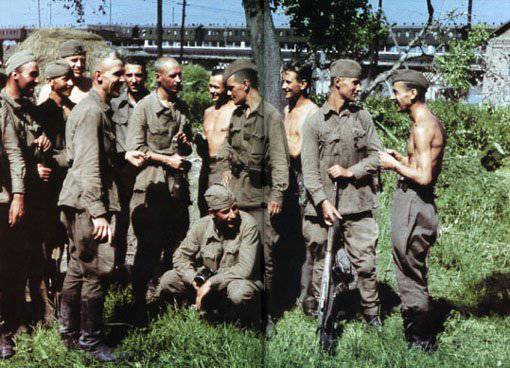
In the summer of 1941, the German Army Group "North" seized one by one the cities and towns of Latvia. The saboteurs of Brandenburg, disguised as wounded Red Army men, arrived at the bridge over the Western Dvina. Their sudden attack on the guard of the bridge allowed them to seize a strategically important object and open the way for German troops to Riga.
In the offensive of the German troops in Lviv in June 1941, the role of the vanguard of the Germans was carried out by the battalion of Ukrainian nationalists Nachtigall, which is part of the Brandenburg regiment. The saboteurs were faced with the task of penetrating into the city and seizing transport and household objects (power station, radio centers and station). "Brandenburgers" captured all the scheduled objects very quickly and without loss. 15 July 1941, the Nachtigall unit attacked one of their headquarters of the Soviet troops, but the saboteurs received a fitting rebuff - as a result, almost the entire nationalist group was destroyed.
Abuver subversive units repeatedly carried out operations in the rear of the Soviet troops. The group of German "coast saboteurs" on the Azov, Black Sea and Baltic coasts caused considerable damage. The nightly outings of the Brandenburgers sowed panic in the Soviet rear and undermined the morale of the Red Army fighters. During the war years, saboteurs were also entrusted with the functions of conducting front-line reconnaissance and fighting with partisans.
In the autumn of 1941, for the Soviet troops, the most difficult situation developed around Moscow. Paratroopers "Brandenburg" landed in the suburbs near the Istra reservoir, to conduct sabotage on the water artery of the capital. However, the special forces of the NKVD managed to stop the operation of the Germans.
In November, 1941, Soviet prisoners of war began to arrive at the Brandenburg training center, expressing a desire to fight against their country. Beginners took the oath and were trained. Sabotage against the Soviet troops received a new impetus.
A group of "Brandenburgers" from 30 people under the command of Hauptmann Lange, which included Germans, Ossetians, Chechens, Ingushs, landed in the area of Chechen villages Chishki, Duba-Yurt to organize an uprising. Soviet soldiers fired at this group still in the air, but Lange with a small group of saboteurs managed to get into the camp of the local abreks and stay there until the Germans retreated from the Caucasus. In November, 1942, the local guides brought a group of German saboteurs to their own.
The loudest operation "Brandenburg" was the Maikop operation, which became a model of special forces actions in the rear of the enemy. In the summer of 1942, the 62 saboteur disguised as NKVD fighters in Soviet army trucks crossed the front line and arrived in Maykop. The leader of the group, von Felkersz, introduced himself to the representatives of the Soviet command as an officer of the NKVD and demanded to report on how the defense of the city was secured. Then, having destroyed the army telephone center, he deprived the commanders of the Soviet units of communication, at the same time spreading information that the German motorized units were in the rear of the defenders of the city, although in fact the advanced German detachments were twenty kilometers from Maikop. He managed to bring panic and confusion into the ranks of the defenders of the city, and the Red Army fighters began to hastily leave their positions. Thanks to the professionalism of the German saboteurs, the city was soon taken by the fascists - practically without a fight.
Africa, Middle East
For a long time, the Brandenburgers were restricted in operation on the African continent due to the negative attitude towards them of the commander of the German Wehrmacht's African corps, General Rommel. However, the actions of the British "commandos" against his troops forced the general to transfer to Brandersburg saboteurs the authority to conduct reconnaissance and sabotage work. Over the course of 1940-1943, the Brandenburgers did enormous damage to the Allied forces: constant attacks on the supply lines of the British army (areas of Sudan and the Gulf of Guinea), sabotage operations in North Africa, reconnaissance of caravan routes and detours through the desert to the Nile delta, capture of the railway the bridge over Wadi El Kibir in Tunisia, the attack on the well-fortified positions of the Americans under Sidi Bou Sid (Tunisia).
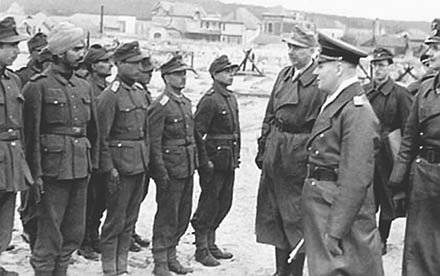
In May 1943, the German Army Group "Africa" was forced to capitulate. The fighters of “Brandenburg” did not fulfill the order of surrender, and in small groups penetrated the territory of southern Italy to continue the struggle in the ranks of the active army.
Long-range application aviation and underwater fleet allowed the Germans to conduct reconnaissance and sabotage activities far beyond the borders of the Reich (the Middle East, Iran, Afghanistan, India). And, as a rule, such operations were entrusted to the Brandenburg fighters. The main objectives of the German saboteurs were communications. Special forces carried out reconnaissance, carried out sabotage operations and engaged in the organization of anti-colonial uprisings.
Since 1940 in the Middle East (Syria, Iraq, Lebanon), the Arab Brandenburg Brigade has been operating against the British colonial forces. So, in Iraq in May 1941, German saboteurs blew up two gunboats and captured about fifty ships. 22 of May of the same year, the Brandenburgers damaged British troops in the area of the caravan route from Damascus to Rabout, and also attacked the British in the Tigris valley, destroying about a hundred British soldiers. The saboteurs of the Brandenburg division also carried out successful operations in India, Afghanistan and Iran. In Afghanistan, they acted as an expedition of epidemiologists identifying leprosy. This group was able to conduct a deep reconnaissance of the border areas of Afghanistan, to establish contact with local rebels and to conduct several sabotage raids against British colonial troops. The Germans, through the Todt Organization, supplied weapons for the fifth column in Afghanistan, and also sent their fighter instructors from Brandenburg-800 to the Afghan territory.
The end of "Brandenburg-800"
The turning point in the war led to a noticeable drop in the level of training of German saboteurs, the stream of traitors from the POW camps dried up, and it became difficult to compensate for the losses in the Abwehr reconnaissance and sabotage unit. In December, 1943 was formed by a detachment of saboteurs, suicide bombers, who blew himself up along with a bridge across the river in Lim near Pepole. In 1944, after the removal of the chief of Abwehr, Admiral Canaris, the division of the saboteurs was reassigned to the services of the SD, the RSHA and the Gestapo. Then the "Brandenburg" became an ordinary motorized division in the Great Germany tank corps.
In May 1945, the story of the Millennium Reich, which only lasted for twelve years, could ingloriously end. The history of the reconnaissance and sabotage unit of Germany, the first German special forces, was even shorter. But after the war, almost all Brandenburg fighters preferred a peaceful life to service in various special forces of various countries of the world. Former German saboteurs in the post-war period served as part of the CAC of Great Britain, in the French Foreign Legion, in US special forces. Also, the “Brandenburgers” moved to Asia, Latin America and Africa, becoming highly paid mercenaries, advisers and instructors. For example, Indonesia’s security service was led by a former Brandenburger for some time. Mao Zedong, Moiza Chombe (Republic of the Congo) and Egypt had military advisers who had previously served in Brandenburg. There is no doubt that as long as there are military confrontations, experts Brandenburg "will be in demand.
Materials used:
http://www.bratishka.ru/archiv/2006/3/2006_3_7.php
http://www.diversant.2x2forum.ru/t38-topic
http://www.demo-pro.ucoz.ru/publ/96/vermakht/brandenburg_800/54-1-0-584
http://waffen.ucoz.ru/news/2009-04-15-1584
http://army.lv/ru/Brandenburg-800-istoriya-armeyskogo-spetsnaza-natsistskoy-Germanii/2648/4630
Information